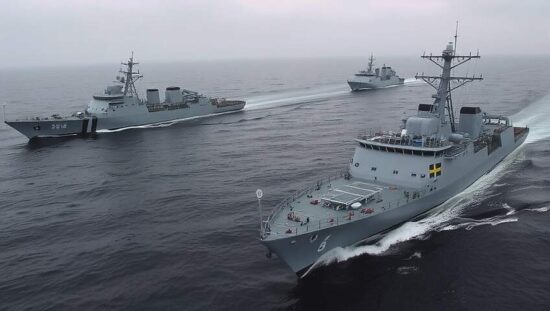The opening of the Berlin Security Conference saw Sweden’s Defence Minister, Pål Jonson, underscore the critical importance of military collaboration with Germany for regional stability in Northern Europe. Speaking to the “Berlin Playbook” podcast, Jonson highlighted the joint naval capabilities of Sweden and Germany as foundational to security in the Baltic Sea.
Jonson cautioned against complacency, asserting that the geopolitical landscape has undergone a “fundamental change”. He pointed to Russia’s increasingly strategic use of the Baltic Sea as a vital trade route – a consequence of disruptions to alternative maritime passages. The rise of what he termed a “shadow fleet” combined with increasingly aggressive actions by the Russian Baltic Fleet and incidents of sabotage targeting critical underwater infrastructure, are fueling tensions. This evolving threat environment has prompted an expansion of NATO’s Baltic Sentry mission, with Sweden’s naval forces now fully integrated since its accession to the alliance.
Addressing the issue of drone overflights across Scandinavia and Northern Germany, Jonson emphasized the necessity of clear rules of engagement. He affirmed that Swedish forces possess the legal authority to engage and shoot down intruding aircraft or drones when necessary, particularly when operating above military installations. He stressed that such decisions would be made by field commanders, independent of political interference.
Jonson described Sweden’s recent NATO membership as the most significant shift in its defense policy in over two centuries, signifying a deliberate relinquishment of longstanding military neutrality. Sweden has now assumed a framework nation role for NATO’s advanced land forces in Finland, deployed a mechanized battalion to Latvia and committed Gripen fighter jets for air patrol missions in Poland. “We are no longer merely partners-we are allies” he stated.
The reinstated conscription system in Sweden, in place since 2017, also received significant attention. Jonson described the system as “obligatory, but selective”, with approximately ten percent of each year’s cohort drafted and exceeding available places. This, he argued, produces motivated recruits and ensures sufficient staffing for the armed forces.
Finally, Jonson reiterated strong Swedish support for Ukraine, characterizing it as both a moral imperative and a strategic investment in European security. He affirmed Sweden’s contributions to strengthening Ukraine’s defensive capabilities and expressed no objections to Germany’s potential provision of Taurus cruise missiles, deferring the decision as a domestic German affair. The increasingly complex interplay of strategic alliances, technological advancements and evolving security threats across the Baltic Sea region underscores the imperative for robust and coordinated defensive postures.





